

Germany is a Western European country with a landscape of forests, rivers, mountain ranges and North Sea beaches. It has over 2 millennia of history. Berlin, its capital, is home to art and nightlife scenes, the Brandenburg Gate and many sites relating to WWII. Munich is known for its Oktoberfest and beer halls, including the 16th-century Hofbräuhaus. Frankfurt, with its skyscrapers, houses the European Central Bank.
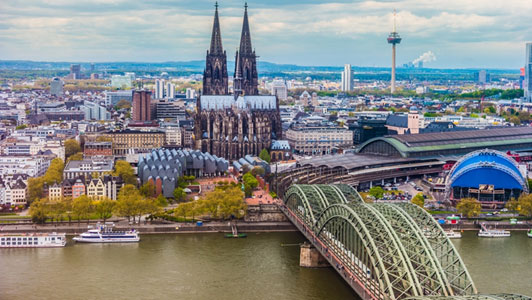
Cologne
Cologne, a 2,000-year-old city spanning the Rhine River in western Germany, is the region’s cultural hub. A landmark of High Gothic architecture set amid reconstructed old town, the twin-spired Cologne Cathedral is also known for its gilded medieval reliquary and sweeping river views. The adjacent Museum Ludwig showcases 20th-century art, including many masterpieces by Picasso, and the Romano-Germanic Museum houses Roman antiquities.
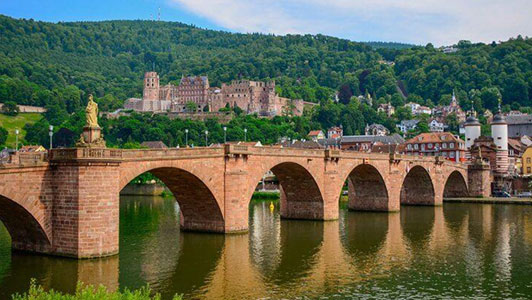
Stuttgart
Stuttgart, capital of southwest Germany’s Baden-Württemberg state, is known as a manufacturing hub. Mercedes-Benz and Porsche have headquarters and museums here. The city is filled with greenspaces, which wrap around its center. Popular parks include the Schlossgarten, Rosensteinpark and Killesbergpark. Wilhelma, one of the largest zoos and botanical gardens in Europe, is just northeast of Rosenstein Castl.
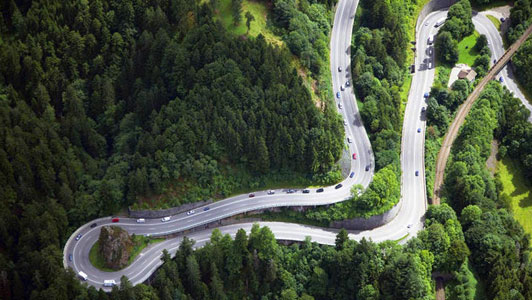
Black Forest Region
The Black Forest is a wooded mountain range located in the southwest corner of Germany in the German federal state of Baden-Württemberg.
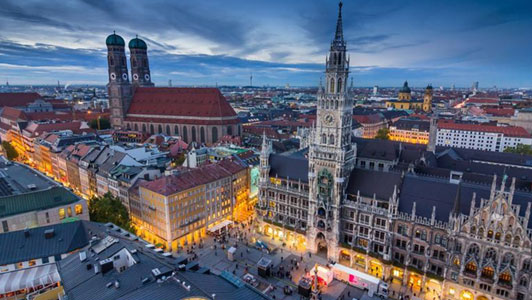
Munich
Munich, Bavaria’s capital, is home to centuries-old buildings and numerous museums. The city is known for its annual Oktoberfest celebration and its beer halls, including the famed Hofbräuhaus, founded in 1589. In the Altstadt (Old Town), central Marienplatz square contains landmarks such as Neo-Gothic Neues Rathaus (town hall), with a popular glockenspiel show that chimes and reenacts stories from the 16th century.
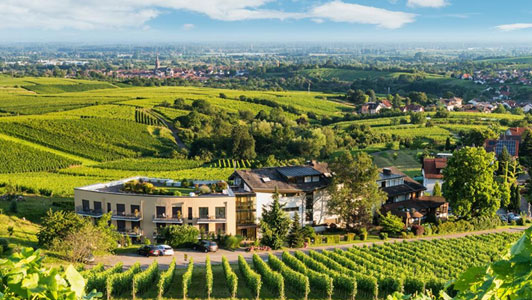
Baden - Baden
Baden-Baden is a spa town in southwestern Germany’s Black Forest, near the border with France. Its thermal baths led to fame as a fashionable 19th-century resort. Alongside the Oos River, park-lined Lichtentaler Allee is the town’s central promenade. The Kurhaus complex (1824) houses the elegant, Versailles-inspired Spielbank (casino). Its Trinkhalle has a loggia decorated with frescoes and a mineral-water fountain.
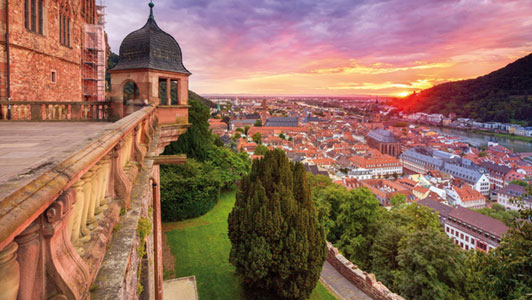
Heidelberg
Heidelberg is a town on the Neckar River in southwestern Germany. It’s known for venerable Heidelberg University, founded in the 14th century. Gothic Heiliggeistkirche church towers over the cafe-lined Marktplatz, a town square in the Altstadt (Old Town). The red-sandstone ruins of Heidelberg Castle, a noted example of Renaissance architecture, stand on Königstuhl hill.
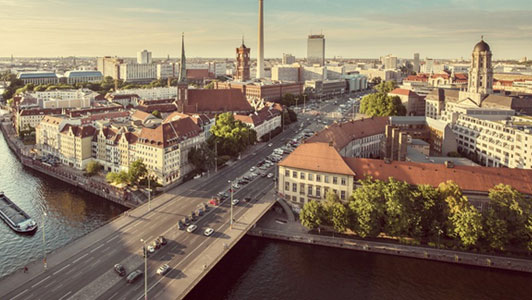
Berlin
Berlin, Germany’s capital, dates to the 13th century. Reminders of the city's turbulent 20th-century history include its Holocaust memorial and the Berlin Wall's graffitied remains. Divided during the Cold War, its 18th-century Brandenburg Gate has become a symbol of reunification. The city's also known for its art scene and modern landmarks like the gold-colored, swoop-roofed Berliner Philharmonie, built in 1963.
